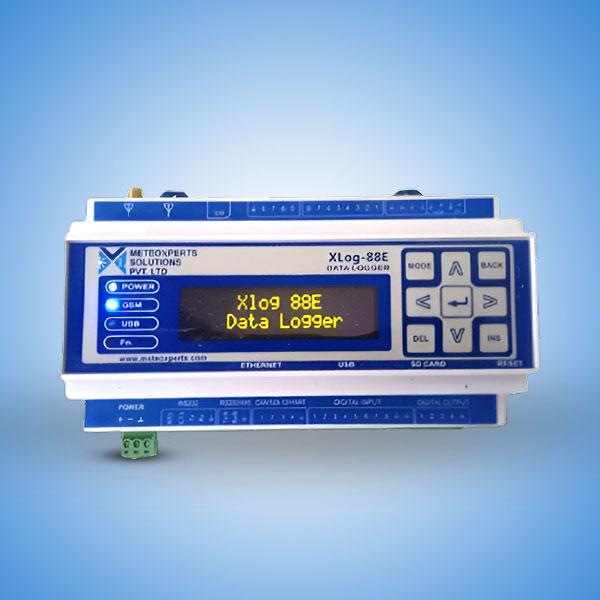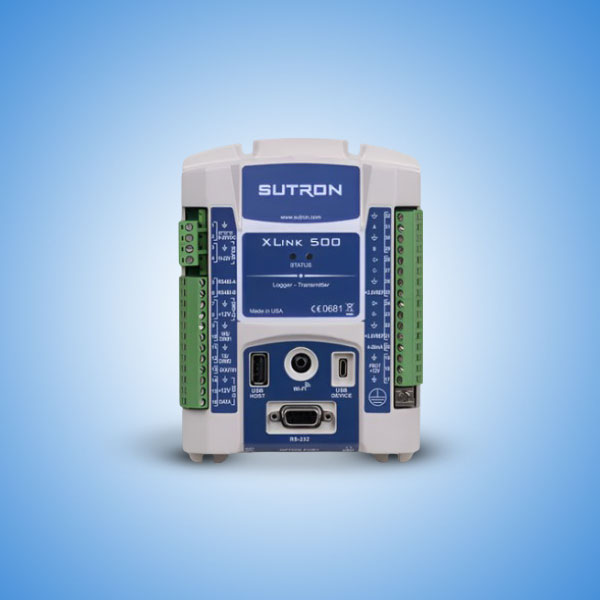Data Logger
A Data Logger is an electronic device used to automatically record data over time or in real-time. It collects information from sensors or instruments and stores it digitally, allowing users to analyze environmental, industrial, or scientific data. Whether you’re monitoring temperature, humidity, voltage, pressure, or current, a Data Logger provides a consistent, accurate, and efficient method for long-term tracking and analysis.

Frequently Asked Questions
A Data Logger is a compact, battery-powered device that records data from connected sensors or built-in modules. It can be programmed to take readings at regular intervals — every few seconds, minutes, or hours — depending on your needs. The data is stored in internal memory and can later be downloaded to a computer or cloud platform for evaluation.
Modern Data Loggers are designed to be user-friendly and durable. Here are some common features:
- Multiple sensor inputs (e.g., temperature, humidity, voltage, current)
- Battery-operated for field use
- Long-term storage capacity
- Programmable intervals for data collection
- USB, Wi-Fi, or Bluetooth data transfer
- Weatherproof or rugged housing for outdoor or industrial use
A Data Logger simplifies complex monitoring tasks by automating the recording process, reducing the risk of human error, and providing accurate results.
Data Loggers are used across many industries and applications. Here are some common uses:
1. Environmental Monitoring
In environmental science, Data Loggers monitor temperature, humidity, and air quality. These devices are essential in weather stations, greenhouses, cold storage facilities, and wildlife research.
2. Industrial and Manufacturing
Factories use Data Loggers to track machinery performance, energy usage, and process temperatures. Monitoring these variables helps improve efficiency, maintain safety, and detect issues before they become problems.
3. Food & Pharmaceutical Industry
In these industries, maintaining a controlled environment is vital. Data Loggers track temperature and humidity during storage and transport to ensure compliance with safety regulations and maintain product quality.
4. Energy Monitoring
Electrical Data Loggers help measure power usage, voltage fluctuations, and equipment performance in solar systems, batteries, and electrical grids.
5. Laboratory Research
Researchers rely on Data Loggers for accurate, repeatable readings during experiments. The automation ensures that no data is missed, even over long periods.
A Data Logger connects to sensors or internal probes to collect information. It measures physical parameters like:
- Temperature
- Humidity
- Pressure
- Light
- Voltage and current
Once programmed, it operates automatically, logging values at set intervals. The device can store data for days, weeks, or months, depending on its memory capacity. Users can later download and analyze this data through software.
There are different types of Data Loggers based on application:
- Standalone Data Logger – Works independently with internal memory and power.
- Wireless Data Logger – Sends data in real-time via Wi-Fi or Bluetooth.
- USB Data Logger – Transfers stored data directly to a computer.
- Multi-channel Data Logger – Connects to multiple sensors simultaneously.
- Cloud-Enabled Data Logger – Allows remote monitoring and alerts.
Choosing the right Data Logger depends on your application, environment, and the kind of data you need to record.
1. Accuracy: High-quality sensors ensure precise measurements.
2. Efficiency: Eliminates manual data collection.
3. Reliability: Consistent data logging with low power consumption.
4. Data Security: Protects against data loss during long-term recording.
5. Cost-Effective: Reduces labor costs and time spent monitoring manually.
5. Remote Access: Many Data Loggers offer real-time viewing from any location.
When selecting a Data Logger, consider the following:
- What parameters do you need to record? (temperature, voltage, etc.)
- How frequently should data be logged?
- Where will it be used? (indoor, outdoor, harsh conditions)
- How will you access the data? (USB, wireless, cloud)
- What is your budget and expected usage duration?
Reliable brands often offer calibration certificates and software support to ensure consistent performance.




















